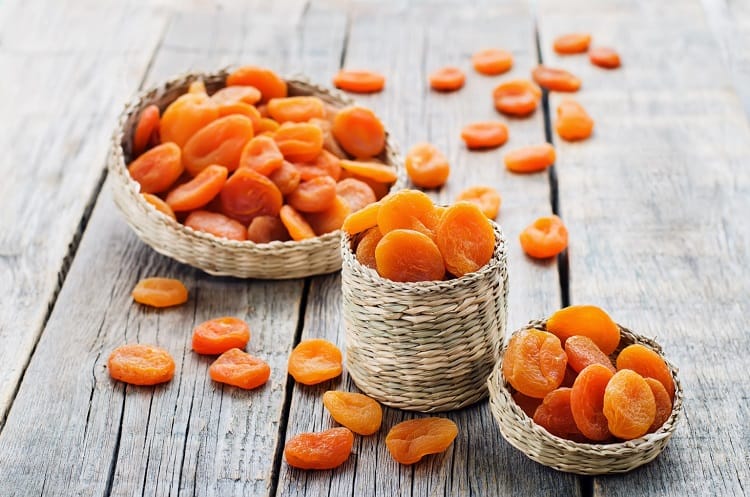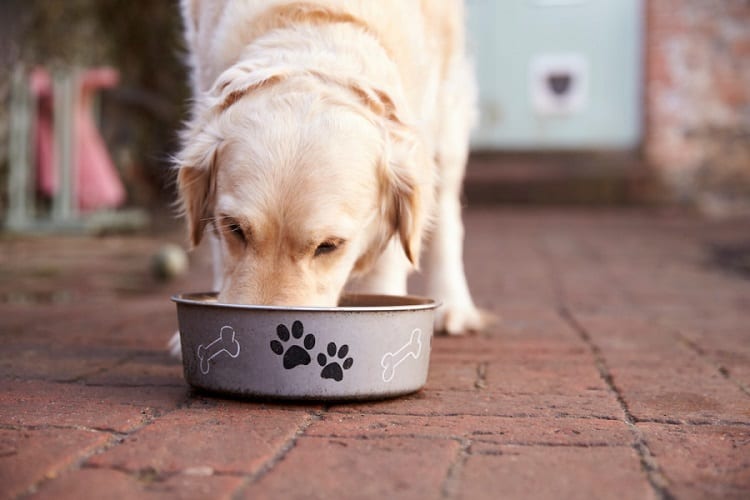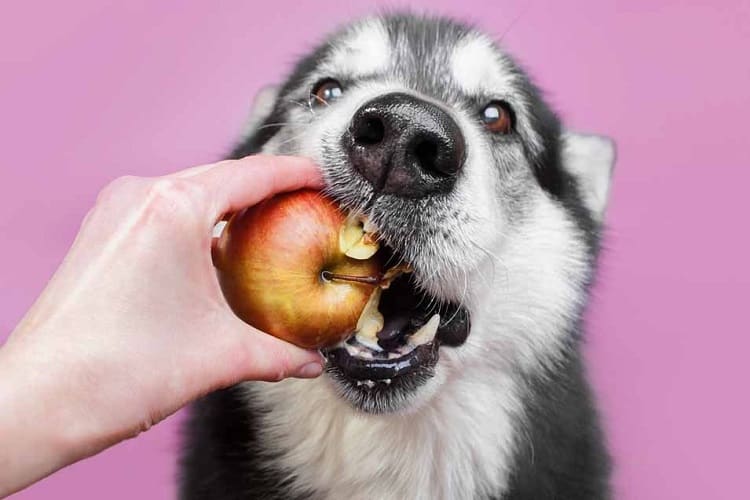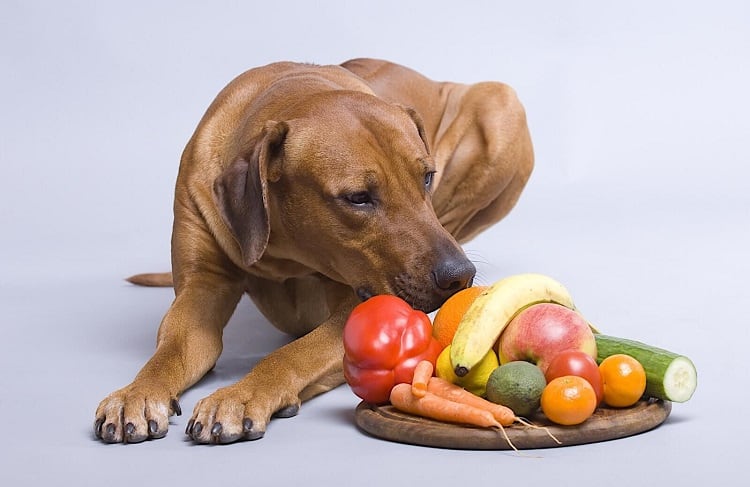Can Dogs Have Dried Apricots?
If you’re wondering whether your dog can eat dried apricots, the short answer is yes, but with certain limitations.
The following article will talk in detail about the benefits and drawbacks of giving dried apricots to your dog and ways you can integrate them into the dog’s diet without worrying about any side effects.
What are Dried Apricots and What do They Taste Like?

First thing’s first. Let’s talk a little bit more about apricots and their characteristics.
Apricots are a type of fruit that belongs to the rose family. They are native to China, where they have been cultivated for over 4,000 years.
Today, however, apricots can be found in many parts of the world, including Europe, Asia, and North America.
Apricots are small, golden-yellow fruits with a smooth texture and a sweet taste. They can be eaten fresh or used in recipes such as pies, jams, and sauces.
Lastly, they are a good source of vitamins A and C, as well as fiber and potassium.
On the other hand, dried apricots are basically apricots dried out by the sun or air.
The drying process reduces the size of the fruit and concentrates its flavor to achieve a chewy texture and a sweet, tart taste. The water can also be removed from the fruit by using a dehydrator.
Dried apricots are usually used in baking and are a good source of dietary fiber, potassium, and vitamin A. In their native continent of Asia, they are a beloved snack food.
Lastly, dried apricots from most grocery stores are usually stored in an airtight container and are pretty accessible, so if you feel like having some, chances are the nearest store will have them.
Benefits of Dried Apricots

There are benefits to giving your dog dried apricot. Let’s take a look at some of them.
Beta Carotene
Beta carotene is a nutrient found in many fruits and vegetables, including carrots, sweet potatoes, spinach, and apricot. It’s also a vital component of your dog’s diet.
Beta carotene is converted into vitamin A in your dog’s body, and this vitamin is essential for vision, immune function, and healthy skin and coat.
Vitamin A deficiency can lead to many health problems in dogs, including dry eyes, urinary tract infections, and skin conditions.
Supplementing your dog’s diet with beta carotene can help to prevent these problems and keep your furry friend healthy and happy.
Potassium
Potassium helps regulate blood pressure, maintains fluid balance, and supports muscle contraction. It is also essential for nerve function and plays a role in heart health.
While most dogs get enough potassium from their diet, some may need supplements if they are deficient.
Although potassium supplements are available in pill or powder form and can be mixed into your dog’s food, dried apricots are a good alternative.
Low-calorie Treat
Dried apricots are low-calorie treats, making them ideal for dogs trying to lose weight. And because they are naturally sweet, they can help to satisfy your dog’s sweet tooth without the need for too much sugar.
Drawbacks of Dried Apricots

There are some drawbacks to consider when deciding to give dried apricots to your dog. Those include:
- The fiber in the fruit can cause digestive problems.
- The pits of apricots can be a choking hazard. If swallowed, they can cause intestine obstruction.
- The chewy texture can cause dental problems.
If you’ve given dried apricot to your dog, watch for signs of digestive distress, vomiting, or diarrhea. If your dog begins to show these symptoms, call your veterinarian immediately.
It might be allergic or have a sensitive stomach. Remember, with dogs and fruits, it’s all about moderation.
Ways to Feed Dried Apricots to Your Dog

There’s one major thing to remember when it comes to feeding dried apricots to your dog – make sure to cut them into small pieces beforehand.
You can also soak them in water for a few minutes to soften them before giving some to your dog.
Alternative Snacks for Dogs

Some of the best alternative snacks for dogs are carrots, celery, and apples. These fruits and vegetables are safe for dogs to eat and are packed with nutrients that can improve their health.
Carrots, for example, are a good source of fiber, which can help regulate your dog’s digestive system.
They are also low in calories and sugar, making them an ideal treat for dogs who are trying to lose weight.
Apples are a good source of vitamins A and C, which are essential for immune health. In addition, celery is a good source of sodium, which helps regulate blood pressure and heart rate.
How to Protect Your Dog From Harmful Fruits

Dogs are naturally curious, which is not always in their favor. Sometimes, they might try to eat something they’re not supposed to and end up in the vet’s ER.
Owners should keep all fruits safely stored away from their dog’s reach to avoid such situations.
Moreover, don’t overfeed your dog with fruits. As mentioned before, it’s all about moderation and figuring out what works best for your dog.
Overeating with dried apricot, for instance, can cause an upset stomach.
Lastly, if you want to give them a little bite from a fruit, make sure it’s washed. This way, you can be sure that there are no traces of toxins or chemicals left on the fruit’s surface.
Conclusion
To sum things up, dried apricots may not be the best snack choice for dogs, but there are many other healthy snacks that you can give your dog.
Carrots, celery, and apples are all good choices that provide essential vitamins and minerals.
Resources:






























